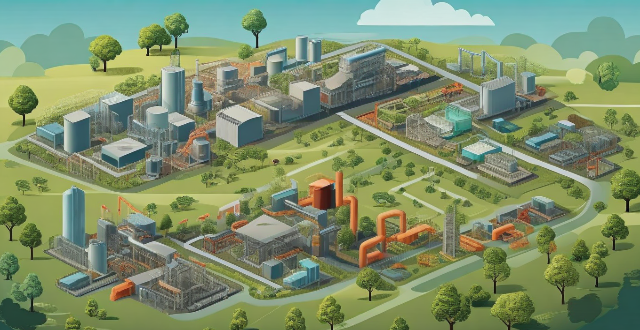The article discusses the responsibility of specific industries in leading climate-focused Corporate Social Responsibility (CSR) initiatives. The top five industries identified are energy production, transportation, agriculture, manufacturing, and real estate development. These industries have a greater responsibility due to their significant contributions to greenhouse gas emissions and other environmental challenges. By taking action within these sectors, businesses can make a meaningful impact on reducing carbon emissions and promoting sustainability across the globe.

Are there specific industries that have a greater responsibility to lead in climate-focused CSR initiatives, and why?
Introduction
Climate change is one of the most pressing issues facing humanity today. With global temperatures rising at an alarming rate, it is imperative that businesses take action to reduce their carbon footprint and contribute to a sustainable future. However, not all industries are created equal when it comes to their impact on the environment. In this article, we will explore which industries have a greater responsibility to lead in climate-focused Corporate Social Responsibility (CSR) initiatives and why.
The Top Five Industries with Greater Responsibility
1. Energy Production
The energy production industry is responsible for a significant portion of global greenhouse gas emissions. This includes fossil fuel companies such as coal, oil, and natural gas producers, as well as nuclear power plants. These industries must take the lead in developing and implementing clean energy solutions to reduce their carbon footprint and mitigate the effects of climate change.
2. Transportation
The transportation sector, including automobile manufacturers, airlines, and shipping companies, also has a significant impact on the environment. These industries must prioritize the development and adoption of low-carbon technologies such as electric vehicles, alternative fuels, and efficient logistics systems to reduce their emissions and promote sustainability.
3. Agriculture
Agriculture is another major contributor to greenhouse gas emissions, particularly through deforestation and livestock farming. As such, the agriculture industry has a responsibility to adopt more sustainable practices such as regenerative farming techniques, reducing food waste, and promoting plant-based diets to mitigate its environmental impact.
4. Manufacturing
Manufacturing processes often involve high levels of energy consumption and waste generation, contributing to pollution and resource depletion. Industries involved in manufacturing must prioritize energy efficiency, waste reduction, and circular economy principles to minimize their environmental footprint and promote sustainability.
5. Real Estate Development
Real estate developers play a crucial role in shaping our built environment, which can either exacerbate or alleviate climate change impacts. By incorporating green building design principles, utilizing renewable energy sources, and promoting sustainable transportation options, real estate developers can help create more resilient communities and reduce overall carbon emissions.
Why These Industries Have Greater Responsibility
These five industries have been identified as having a greater responsibility to lead in climate-focused CSR initiatives due to their significant contributions to greenhouse gas emissions and other environmental challenges. By taking action within these sectors, businesses can make a meaningful impact on reducing carbon emissions and promoting sustainability across the globe. Additionally, these industries often have the resources and influence necessary to drive innovation and inspire broader changes in consumer behavior and regulatory policies.
In conclusion, while all businesses should strive to operate sustainably and contribute to efforts to combat climate change, certain industries carry a greater responsibility due to their disproportionate impact on the environment. By embracing climate-focused CSR initiatives, these industries can help pave the way for a more sustainable future for all.